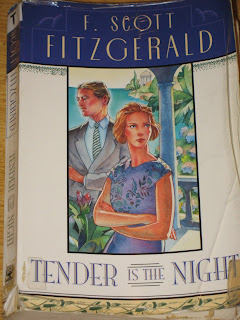I just revisited F. Scott Fitzgerald’s Tender Is The Night, and of course found a few Shakespeare references. The first reference, however, is in the introduction written by Charles Scribner III, though in a note by Fitzgerald within that introduction. Anyway, here it is: “Think of the case of the Renaissance artists, and of the Elizabethan dramatists, the first having to superimpose a medieval conception of science and archeology, etc., upon the Bible story; and, in the second, of Shakespeare’s trying to interpret the results of his own observation of the life around him on the basis of Plutarch’s Lives and Holinshed’s Chronicles” (p. xiv). In the novel itself, there is a reference to The Tempest, or at least the use of a word that Shakespeare apparently created for that play. Fitzgerald writes, “Standing in the station, with Paris in back of them, it seemed as if they were vicariously leaning a little over the ocean, already undergoing a sea-change, a shifting about of atoms to form the essential molecule of a new people” (p. 83). In The Tempest, Shakespeare writes, “Nothing of him that doth fade,/But doth suffer a sea-change/Into something rich and strange.” Though Puck wasn’t Shakespeare’s invention, I figured I’d mention that there is a reference to that character in this novel. Fitzgerald writes, “Tommy ordered two cognacs, and when the door closed behind the waiter, he sat in the only chair, dark, scarred and handsome, his eyebrows arched and upcurling, a fighting Puck, an earnest Satan” (p. 294). The final reference is to Hamlet: “On an almost parallel occasion, back in Dohmler’s clinic on the Zürichsee, realizing this power, he had made his choice, chosen Ophelia, chosen the sweet poison and drunk it” (p. 302).
Tender Is The Night was published in 1934. The First Scribner Paperback Fiction Edition was published in 1995.

No comments:
Post a Comment